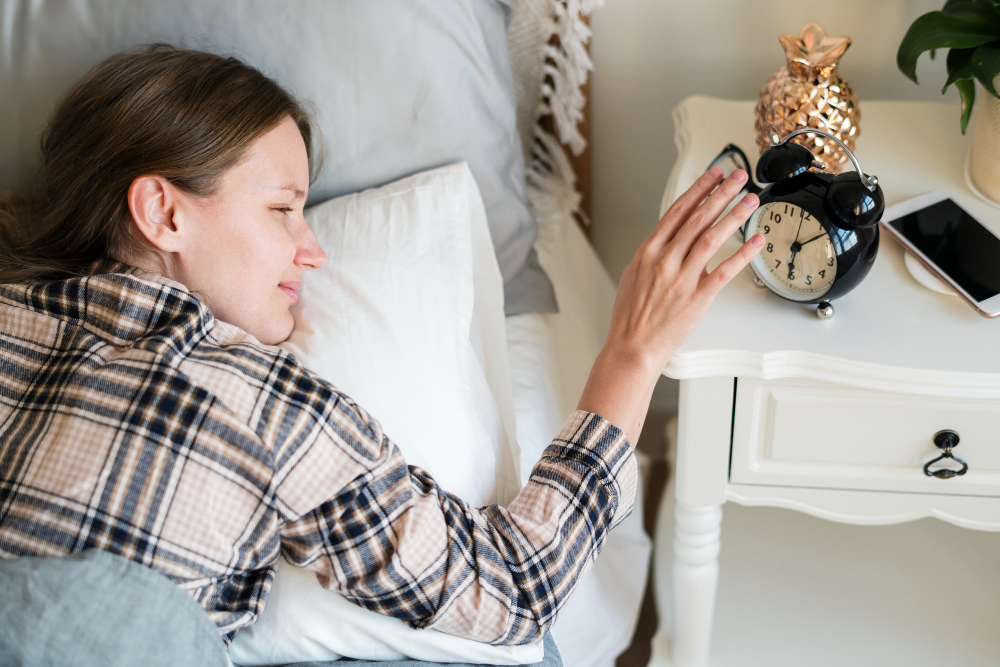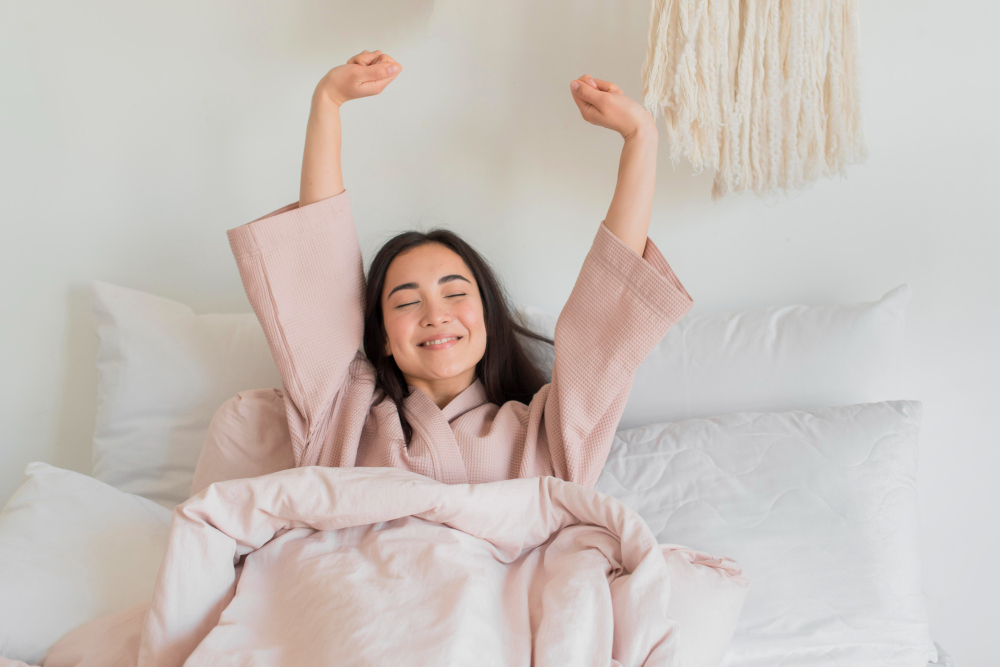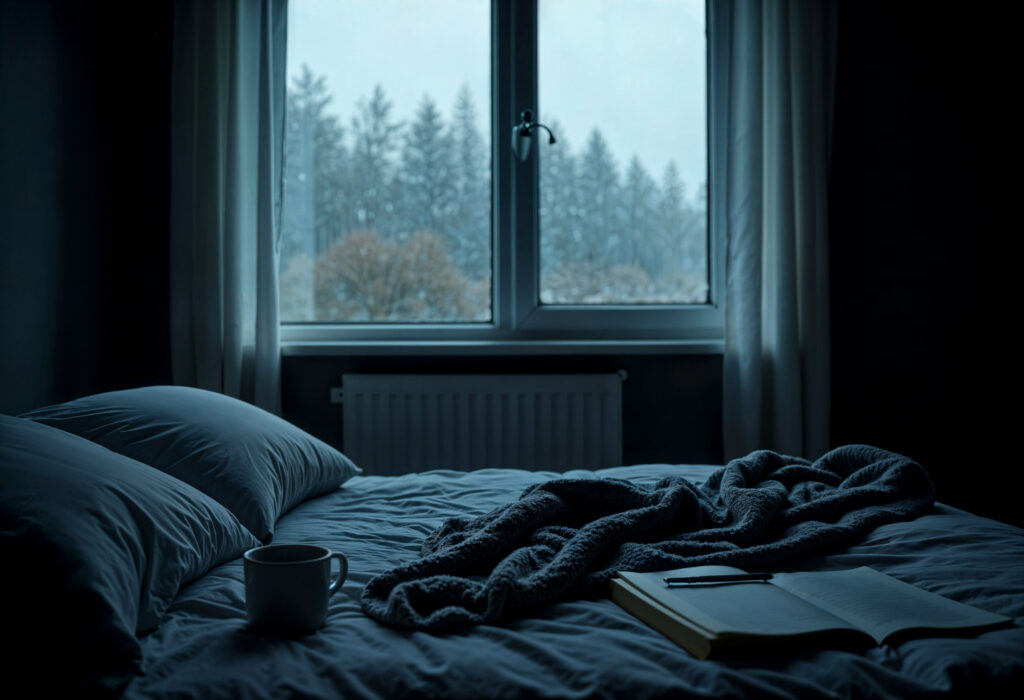Getting a good night’s sleep is something most of us wish for, but not everyone manages to get. If you find yourself tossing and turning, waking up feeling tired, or struggling to fall asleep, you’re definitely not alone. The good news is that small, simple changes to your best nighttime habits can make a huge difference in how well you rest and how refreshed you feel when you wake up.
In this article, we’ll explore some of the best nighttime habits that can help you relax, unwind, and enjoy deeper, more restful sleep. No complicated advice or fancy gadgets here — just practical, easy-to-follow tips that anyone can try tonight!
The Importance of a Nighttime Routine
Our bodies and minds thrive on routine. Having a consistent way to wind down each night sends a clear message to your brain that it’s time to relax and prepare for sleep. Without a routine, your mind can stay busy with all sorts of thoughts — worries about work, plans for tomorrow, or just general restlessness — making it harder to drift off.
Developing a best nighttime routine isn’t about perfection. It’s about finding simple habits that help you relax and give your body the gentle signal it needs to prepare for rest.
Think of your nighttime routine as a gentle signal that helps your body switch from the hustle of the day to the calmness of night. When you follow a routine, your nervous system gets the cue to slow down, your heart rate lowers, and your body releases sleep-friendly hormones like melatonin.
Dim the Lights and Turn Off Screens Early
One of the simplest ways to help your body get ready for sleep is to reduce exposure to bright light in the evening, especially blue light from screens. Phones, tablets, computers, and TVs all emit blue light, which tricks your brain into thinking it’s still daytime. This can interfere with the production of melatonin, the hormone that helps you fall asleep.
Try to switch off screens at least 30 minutes before bedtime. Instead, turn on dim lamps or use warm, soft lighting to create a cozy atmosphere. This small step alone can help your brain get into sleep mode more naturally.
Create a Calm and Comfortable Bedroom for Your Best Nighttime Experience
Your bedroom should feel like a sleep sanctuary — a place where you can relax without distractions. Here are some tips to make your sleeping space more inviting:
Keep the temperature cool and comfortable
Between 65-70°F (18-21°C) is ideal for most people to sleep well.
Use blackout curtains or an eye mask
Blocking out light helps your brain know it’s time to sleep.
Keep noise levels down, or use white noise
Reduce disruptive sounds or use soothing background noise like rain or ocean waves.
Make sure your mattress and pillows are comfortable
A supportive bed setup helps your body relax completely.
Try Relaxing Activities for Your Best Nighttime Routine
Instead of rushing from work or activities straight to bed, give yourself time to unwind with calm and soothing activities.

Here are a few ideas:
- Read a book: Choose something light and enjoyable — avoid anything too exciting or stressful.
- Write in a journal: Jot down your thoughts, feelings, or a list of things you’re grateful for. This can help clear your mind.
- Gentle stretching: Simple stretches can release muscle tension and prepare your body for rest.
- Listen to calming music or nature sounds: Soft instrumental tunes or sounds of nature can help calm your mind.
Including calming activities in your best nighttime habits, like reading a light book or doing gentle stretches, can help ease your mind and make falling asleep easier.
These quiet moments before sleep allow your brain to shift gears from busy to relaxed.
A Little Story About My Own Sleep Struggles
I remember a time not too long ago when I couldn’t sleep for hours. I’d lie in bed staring at the ceiling, my mind racing with worries about deadlines and things I had to do the next day. It felt like no matter what I tried, the restless thoughts wouldn’t stop.
One night, I decided to try turning off all my screens an hour before bed — something I’d heard about but never took seriously. I dimmed the lights, brewed a cup of chamomile tea, and picked up a light novel. After just a few nights of this new routine, I noticed I was falling asleep faster and waking up feeling less tired.
That small change taught me how powerful a simple nighttime routine can be. Sometimes, all it takes is slowing down and giving your brain the signal to rest.
Enjoy a Warm Bath or Shower
Taking a warm bath or shower before bed is a wonderful way to relax your muscles and signal your body that it’s time to slow down. The warm water raises your body temperature, and when you step out, your body cools down quickly, which can encourage feelings of sleepiness.
Consider adding a few drops of calming essential oils like lavender or chamomile to your bath for extra relaxation. This self-care ritual not only soothes your body but also gives you a peaceful break before bedtime.
Sip a Soothing Herbal Tea
Certain herbal teas have natural calming properties and can be a lovely part of your bedtime routine. Some popular choices include:
- Chamomile
- Lavender
- Lemon balm
- Passionflower
Be sure to avoid any teas that contain caffeine or stimulants. Sipping a warm cup of herbal tea can be a comforting ritual that signals your body it’s time to relax.

Practice Deep Breathing or Mindfulness
If your mind races when you try to fall asleep, deep breathing exercises or mindfulness can help calm those busy thoughts.
Here’s a simple breathing technique you can try:
- Breathe in slowly through your nose for a count of 4.
- Hold your breath for a count of 4.
- Slowly exhale through your mouth for a count of 6.
- Repeat this cycle a few times.
This helps lower your heart rate and focus your mind, making it easier to drift off peacefully.
Stick to a Consistent Sleep Schedule
Going to bed and waking up at the same time every day helps regulate your body’s internal clock. This consistency makes falling asleep and waking up easier and improves the overall quality of your rest. If you want to learn more about how regular schedules can boost your sleep and energy, take a look at our article on Restorative Sleep.

Try to choose a bedtime that allows for 7–9 hours of sleep and stick with it, even on weekends. Over time, your body will get used to this rhythm, and you’ll find it easier to feel rested.
Avoid Heavy Meals, Caffeine, and Alcohol Before Bed
Eating a large meal right before bed can cause discomfort and indigestion that disrupt your sleep. Caffeine and alcohol can also interfere with your sleep cycle and reduce the quality of your rest.
Try to finish eating at least 2–3 hours before bedtime, and limit caffeine intake after midday. If you enjoy a drink in the evening, keep it light and notice how it affects your sleep.
Keep a “Worry Journal” by Your Bedside
If you find yourself lying awake with anxious thoughts, keeping a small notebook near your bed can help. When worries or to-do lists pop into your head, write them down. This simple habit can help clear your mind and make it easier to relax.
You might also jot down any positive thoughts or things you’re grateful for — this can help shift your focus to a calm, peaceful mindset.
Bringing It All Together
Building a bedtime routine doesn’t have to be overwhelming or complicated. Even just choosing a few of these habits and practicing them consistently can lead to big improvements in your sleep quality.

Remember, the goal is to create a peaceful, comforting way to end your day — a moment to slow down, relax, and prepare your body and mind for restful sleep.
Your Turn!
Now I’d love to hear from you: What’s your favorite part of your nighttime routine? Have you tried any of these habits, or maybe you have other tips that help you sleep better? Drop a comment below and let’s share our best ideas for a good night’s rest!
Sources
Centers for Disease Control and Prevention (CDC) – The CDC’s About Sleep section provides research-backed guidelines on improving sleep quality. They emphasize maintaining a consistent sleep schedule, creating a relaxing bedroom environment, and avoiding caffeine and alcohol before bedtime to regulate the body’s internal clock and enhance rest.
https://www.cdc.gov/sleep/about/index.html
National Sleep Foundation (NSF) – In their Sleep Hygiene resource, NSF explains how good sleep hygiene—including regular sleep and wake times, relaxing bedtime routines, and optimizing the sleep environment—improves sleep quality and overall health.
https://www.sleepfoundation.org/sleep-hygiene
Mayo Clinic – Mayo Clinic’s article Sleep tips: 6 steps to better sleep offers practical advice like keeping a consistent bedtime, making your bedroom sleep-friendly, and avoiding stimulants before sleep to help improve sleep quality and wellbeing.
https://www.mayoclinic.org/healthy-lifestyle/adult-health/in-depth/sleep/art-20048379





